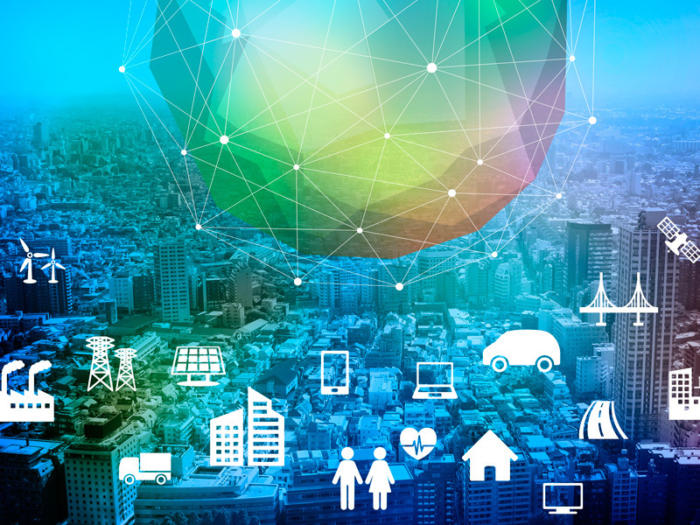There is no doubt we are entering a time of exponential change in technological innovation. Just look around. We are witnessing self-driving cars traversing the streets in California and Texas. Doctors now perform open-heart surgery with robotic arms, in some cases from a remote operating room hundreds of miles from the patient.
copyright by www.cio.com
 Robotic exoskeletons are creating a “super labor force” by enhancing the strength of workers, and human capabilities are reaching new heights in factories, warehouses, and construction sites.
Robotic exoskeletons are creating a “super labor force” by enhancing the strength of workers, and human capabilities are reaching new heights in factories, warehouses, and construction sites.
Smart Cities
Major metropolises are using IoT to improve public safety and services , to respond to complex urban conditions and real-time security risks, and to scale deployment of secure city infrastructure . IoT is also addressing increased demand for agriculture production to feed growing populations , and is mitigating water scarcity and drought with smarter water management and conservation systems.
Finding purpose: beyond technology and the bottom line
Undoubtedly, the business and economic impacts of IoT are enormous, and we are only scratching the surface. While technological progress is also certain to bring significant economic and collective benefits, we must also be mindful of the unknown societal effects that IoT and the digital explosion will have on culture, jobs, and the global workforce.
As business leaders, we must think beyond the fiscal bottom line and technological advances in products and services and ask ourselves, how will IoT affect the communities we operate in and whatwill our role be in readying society and the workforce for this digital phenomenon that is rapidly proliferating? Technology itself has no ethics. It is only when people apply purpose and innovative thinking beyond revenue and profit that we will be able to reap collective benefits and security of the digital world. […]
read more – copyright by www.cio.com


There is no doubt we are entering a time of exponential change in technological innovation. Just look around. We are witnessing self-driving cars traversing the streets in California and Texas. Doctors now perform open-heart surgery with robotic arms, in some cases from a remote operating room hundreds of miles from the patient.
copyright by www.cio.com
Smart Cities
Major metropolises are using IoT to improve public safety and services , to respond to complex urban conditions and real-time security risks, and to scale deployment of secure city infrastructure . IoT is also addressing increased demand for agriculture production to feed growing populations , and is mitigating water scarcity and drought with smarter water management and conservation systems.
Finding purpose: beyond technology and the bottom line
Undoubtedly, the business and economic impacts of IoT are enormous, and we are only scratching the surface. While technological progress is also certain to bring significant economic and collective benefits, we must also be mindful of the unknown societal effects that IoT and the digital explosion will have on culture, jobs, and the global workforce.
As business leaders, we must think beyond the fiscal bottom line and technological advances in products and services and ask ourselves, how will IoT affect the communities we operate in and whatwill our role be in readying society and the workforce for this digital phenomenon that is rapidly proliferating? Technology itself has no ethics. It is only when people apply purpose and innovative thinking beyond revenue and profit that we will be able to reap collective benefits and security of the digital world. […]
read more – copyright by www.cio.com
Share this: